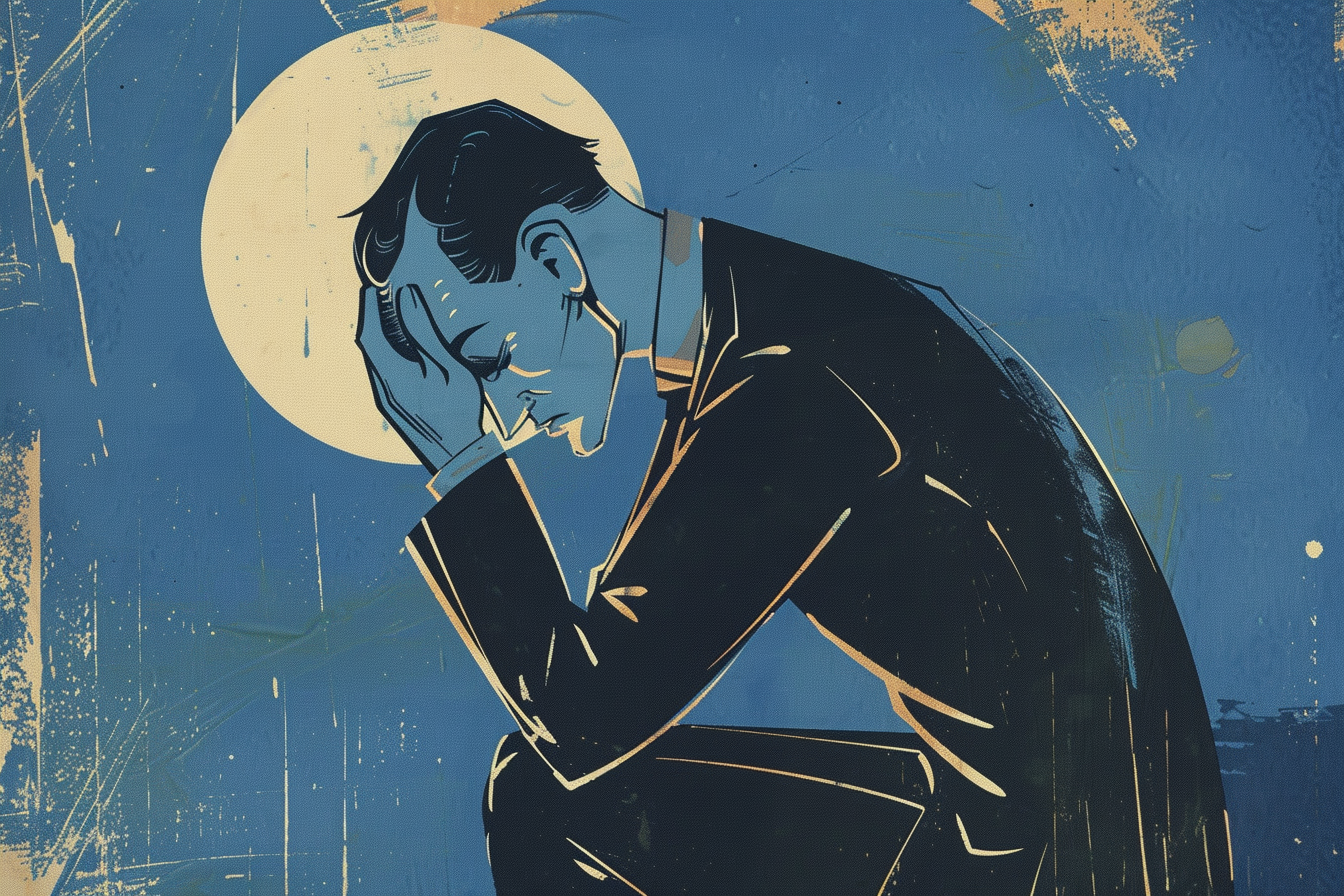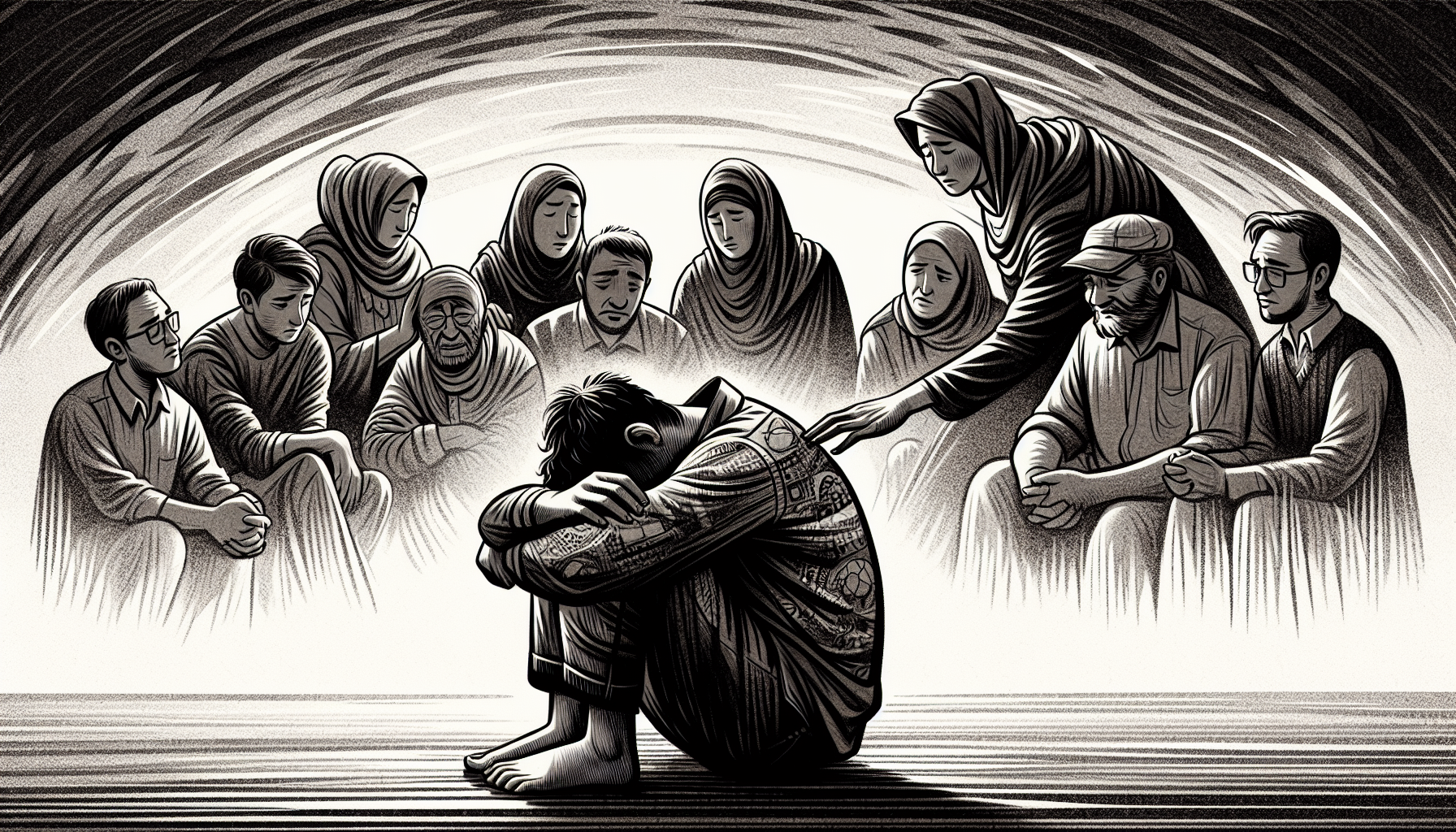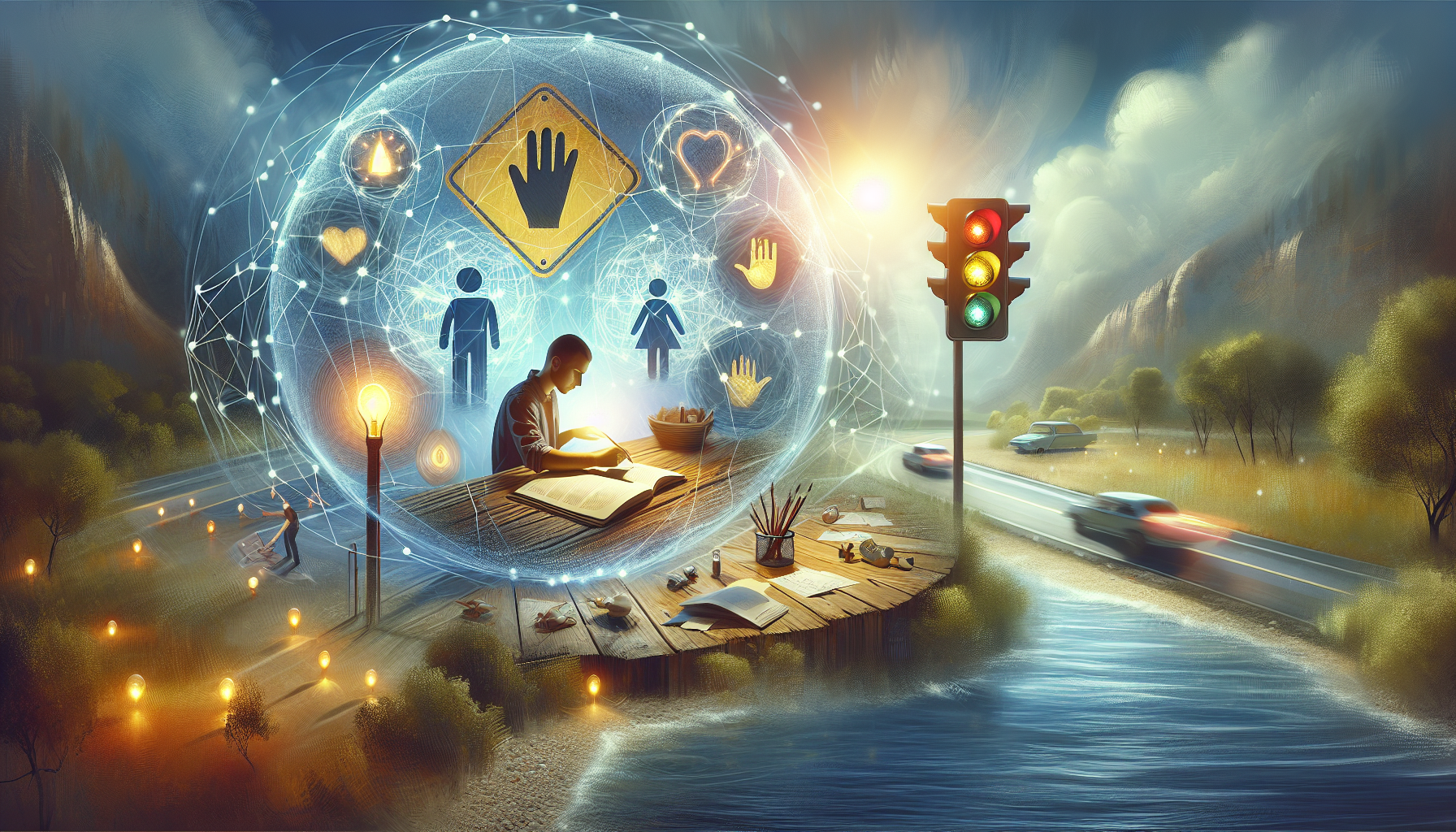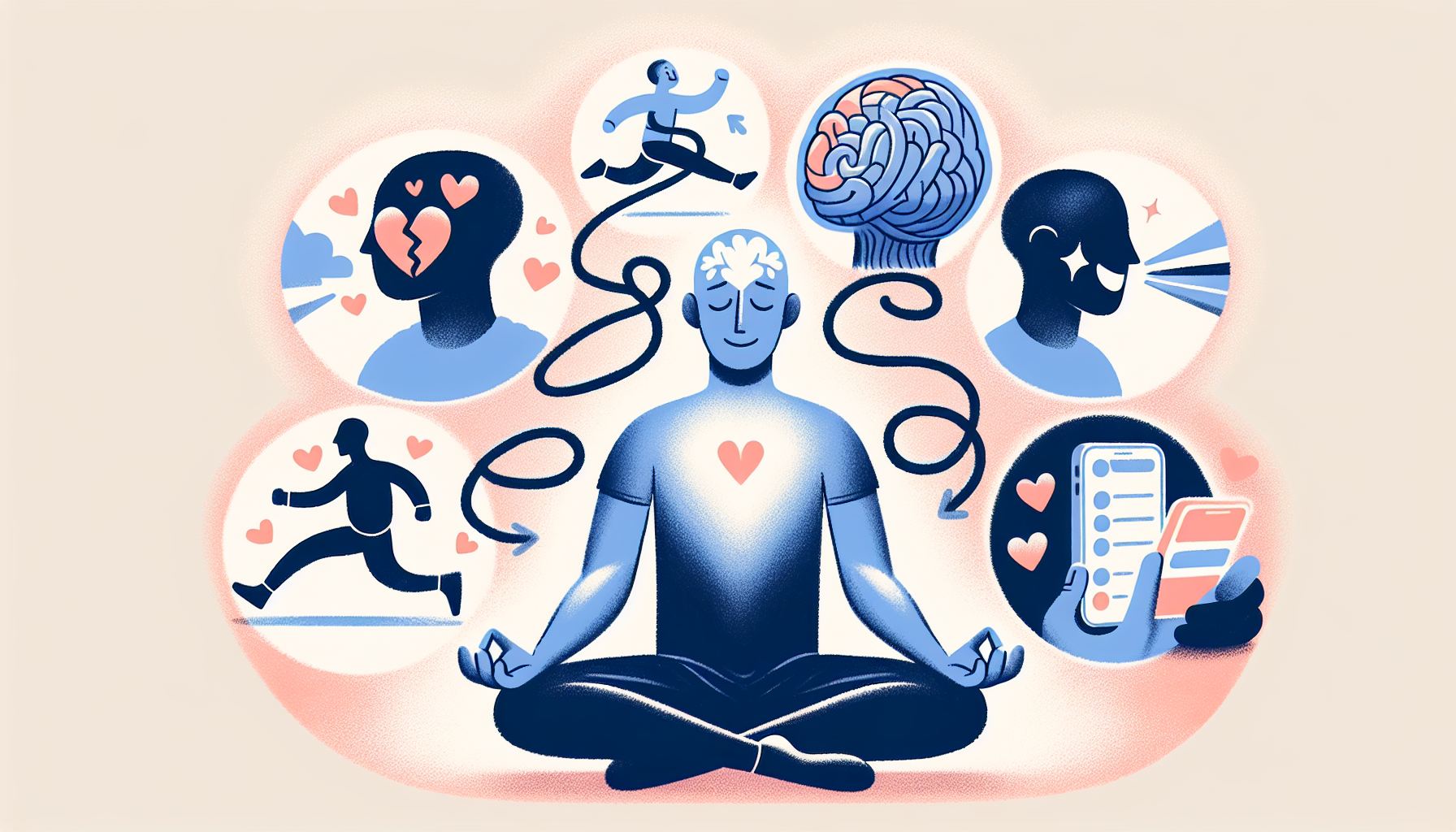Suicide After Breakup: Support & Recovery

Feeling suicidal after breakup is a serious signal that you need support. This article outlines clear steps to help you deal with the turmoil you’re experiencing. From creating a safety plan to exploring healing strategies, we aim to guide you towards a path of recovery. Immediate help and hope are both within reach—a message we want you to carry as you read through.
Key Takeaways
-
Breakups can trigger severe emotional distress mimicking clinical depression and loss, which can last up to two years or more and may lead to suicidal thoughts, emphasizing the importance of seeking help and support.
-
Psychic mediumship can provide solace to those grieving after a suicide by facilitating communication with the deceased, promoting closure and helping survivors cope with guilt and confusion. Mediumship can also be used in suicide prevention.
-
Creating a personal plan, involving warning sign identification, coping strategies, and emergency contacts, is crucial for preventing self-harm and navigating crisis moments effectively.
Understanding the Emotional Turmoil Post-Breakup

The emotional distress that follows a breakup can be overwhelming. It’s a whirlpool of feelings that can leave us feeling drained and helpless. It’s important not to bottle up these emotions. Why? Because expressing them can help your support network to understand and provide assistance more effectively.
In the first few weeks after a breakup, the intensity of these emotions can be particularly acute, making it a critical period for seeking support and beginning the healing process.
The Impact of Loss on Mental Health
Breakups can often lead to significant emotional distress, affecting our self-concept. It can trigger adjustment disorders with symptoms akin to clinical depression, potentially lasting from six months to two years. Moreover, such losses can evoke a natural response of grief, leading to physical health disturbances including sleep and eating disorders.
When Grief Becomes Overwhelming
When grief becomes overwhelming, it can lead to feelings of hopelessness, worthlessness, and even thoughts of suicide, indicating the presence of depression. It’s crucial to understand that seeking help during such times is not a sign of weakness, but of strength.
Embracing Psychic Mediumship for Healing
Have you heard of psychic mediumship? It’s a compassionate process that can assist individuals in coping with the pain and aftermath of a suicide, potentially being part of their healing journey. It’s often sought by those who have lost a loved one to suicide as they deal with feelings of guilt, confusion, and the need for closure.
Finding Solace in Spiritual Connections
Many individuals find comfort and solace by establishing spiritual connections with deceased loved ones. A mediumship reading session can be used to allow the departed to gain final closure and move on in the spirit world.
Gaining Closure Through Communication
Psychic mediums often communicate with spirits to aid the living in gaining closure. These profound messages from the departed can facilitate a degree of healing for those left behind.
Creating a Safety Plan

A personal plan can serve as a personal guide during crises, helping individuals with suicide prevention and self-harm reduction. It includes:
-
Identifying personal warning signs and practicing mindfulness to stay present and grounded
-
Coping strategies including therapeutic techniques such as cognitive-behavioral therapy (CBT) exercises, journaling for emotional expression, and engaging in creative activities like art or music therapy
-
Social supports, including establishing connections with support groups and trusted friends or family members who understand the situation
-
Planning for a safe environment by removing potential self-harm tools and creating a comforting personal space
Identifying Triggers and Support Networks
Building a robust support network can mitigate the risk of tough times by providing assistance and fostering progress. It’s also crucial to identify personal crisis warning signs and prepare strategies to cope with such moments.
Practical Steps for Crisis Moments
During a crisis, having quick access to emergency contact numbers, like close friend or crisis hotlines, is vital. These emergency numbers should be contacted as soon as you feel overwhelming emotional distress or suicidal thoughts.
Self-Care Strategies for Recovery

Self-care plays a pivotal role in the journey towards recovery. A wellness routine tailored to individual goals and lifestyle, ensuring the consistent practice of enjoyable physical exercises is key for the mental health and can significantly aid recovery.
Building a Nurturing Daily Routine
A structured morning routine can greatly contribute to a positive and energetic beginning of the day. Incorporating elements of inspiration into the morning, such as:
-
listening to uplifting Music
-
reading motivational literature
-
listening to uplifting podcasts
-
practicing gratitude
-
setting intentions for the day
Establishing a positive mindset during the first few hours of life can set the tone for the rest of the day.
Leveraging Social Media for Positive Influence
Social can help reduce feelings of loneliness by providing a platform to connect with supportive individuals and communities. Sharing feelings and personal experiences on social can help individuals cope with isolation and find others with similar struggles.
However, it's crucial to recognize that constant exposure to social media can sometimes lead to the adverse effect of intensified psychological loneliness. This phenomenon occurs when individuals perceive that everyone else is having fun, traveling or with friends and family all the time except for them, which can exacerbate the sense of isolation and contribute to emotional distress. Of course, it's rare to see posts of individuals crying, gaining weight, or looking miserable, as most people choose to share only their happiest moments.
Reaching Out: The Power of Talking and Listening

Expressing oneself and not suppressing emotions are key to easing the process of receiving support from others, allowing support networks to understand and provide assistance effectively. By speaking about their challenges and actively listening to others, individuals can foster an environment that diminishes feelings of isolation and enhances feelings of connectedness. It’s essential for those in need to seek support and maintain open communication with their support networks.
The Role of Friends and Family in Recovery
Supportive and positive relationships are a protective factor against suicidal thoughts and behaviors. Expressing gratitude towards friends and relatives who offer support reaffirms the value of these relationships and the mutual nature of support networks.
Professional Support Options
Attending therapy or support groups can provide substantial benefits to individuals grappling with the aftermath of a relationship’s end, offering a dedicated space for discussing issues and promoting healing.
For those experiencing negative thoughts, crisis counseling along with therapy and support groups constitute critical professional support options in suicide prevention.
Transformative Journeys: Stories of Hope and Resilience
Listening to stories of a person with similar experiences can provide comfort and understanding, especially when it’s the same person who has gone through those experiences and can talk about them.
Stories from attempted survivors offer resources for hope and recovery.
Exploring Psychedelic Healing: Ayahuasca and Psilocybin Mushrooms
In the quest for emotional healing post-breakup, some individuals are turning to ancient remedies with modern applications—psychedelics such as ayahuasca and psilocybin mushrooms. These substances have been used for centuries in various cultures for their transformative effects on consciousness and are now being rediscovered as tools for psychological healing. It is crucial, however, to approach these powerful substances with caution. They should be used under the supervision of a knowledgeable professional shaman or doctor, and with the correct dosage, as improper use can lead to harmful consequences and unwanted effects.
The Therapeutic Potential of Psychedelics
Psychedelics, including ayahuasca—a brew made from the Banisteriopsis caapi vine and other ingredients—and psilocybin mushrooms, are known for their ability to evoke profound experiences, often leading to insights that help bring suppressed feelings to light. This can be particularly beneficial for those dealing with the deep-seated emotional turmoil of a breakup.
Clinical Use of Psychedelics for Emotional Healing
A growing number of clinics worldwide are beginning to incorporate psychedelics into their therapeutic practices. For instance, in Berlin, clinics offer guided sessions with psychedelics like LSD and psilocybin to help individuals process grief and loss. Similarly, in the USA, FDA-regulated trials are exploring the use of MDMA-assisted psychotherapy for the treatment of PTSD, with promising results that suggest potential applications for other forms of emotional distress.
Case Studies: Breakthroughs with Psychedelics
Reports from individuals who have participated in psychedelic therapy sessions often speak of a newfound perspective on their experiences. For example, a clinic in Berlin reported a case where a patient found clarity and acceptance after a guided psilocybin session, allowing them to move forward from a painful breakup and abuse. In the USA, MDMA-assisted therapy has helped individuals confront and heal from past traumas, including the emotional scars left by the end of significant relationships.
Caution with Combining Psychedelics and Pharmaceuticals
As research continues to unfold, the potential of psychedelics to aid in the healing process is becoming more widely recognized, offering hope to those seeking alternative paths to recovery after the devastation of a breakup.
It is essential to note, however, that psychedelics should not be used in combination with pharmaceutical medications without professional guidance, as such mixtures can lead to adverse interactions and affect the safety and efficacy of the treatment.
Summary
In conclusion, the journey of healing after a breakup can be challenging. However, remember, you’re not alone. Lean on your support network, embrace self-care strategies, and seek professional help when needed. Always remember, it’s okay to ask for help, and it’s okay to take your time to heal.
Frequently Asked Questions
What is psychic mediumship?
Psychic mediumship is a process where an individual communicates with spirits to assist those coping with the pain and aftermath of a suicide, part of their healing journey.
How can I create a safety plan?
To create a personal plan, identify your warning signs, emergency numbers and coping strategies, social supports, and plan for a safe environment. This will help ensure you are prepared for any potential risks.
Why is it important to have a nurturing daily routine?
Having a nurturing routine is important because it sets a positive tone for the day, including physical activity and morning exercise, a healthy breakfast, uplifting music and exposure to sunlight.
How can I seek professional support?
Seeking professional support for dangerous thoughts can involve attending therapy, joining support groups, and reaching out to crisis counseling for immediate help. It's important to take these steps as soon as possible.




